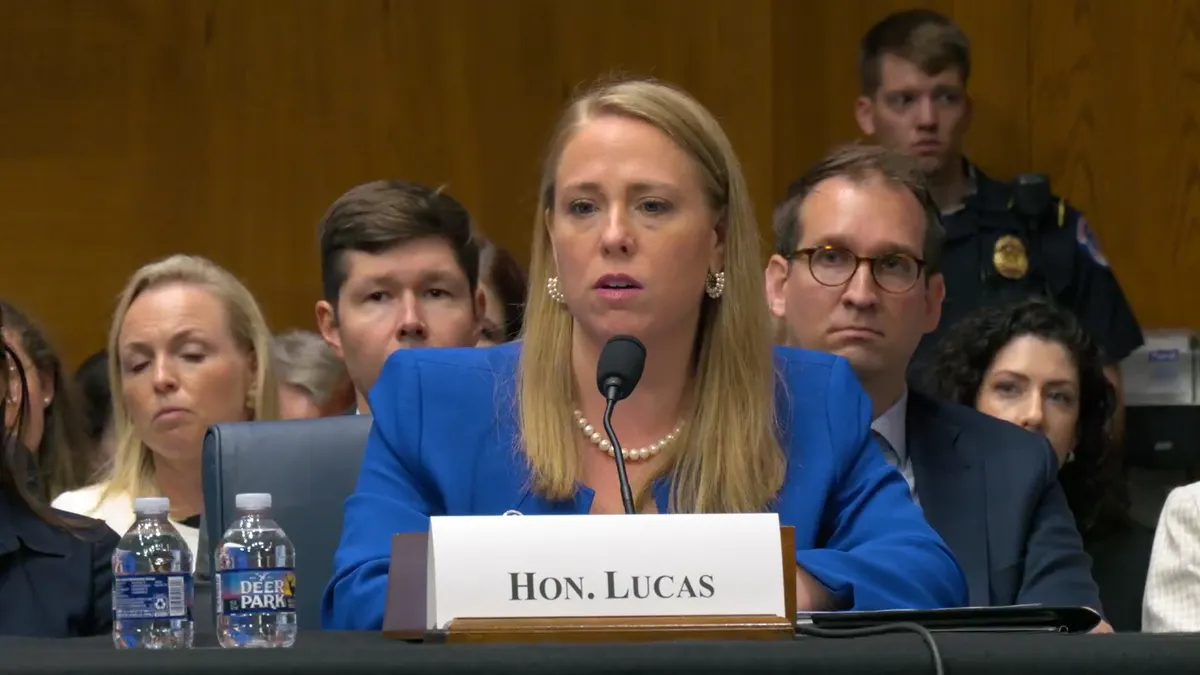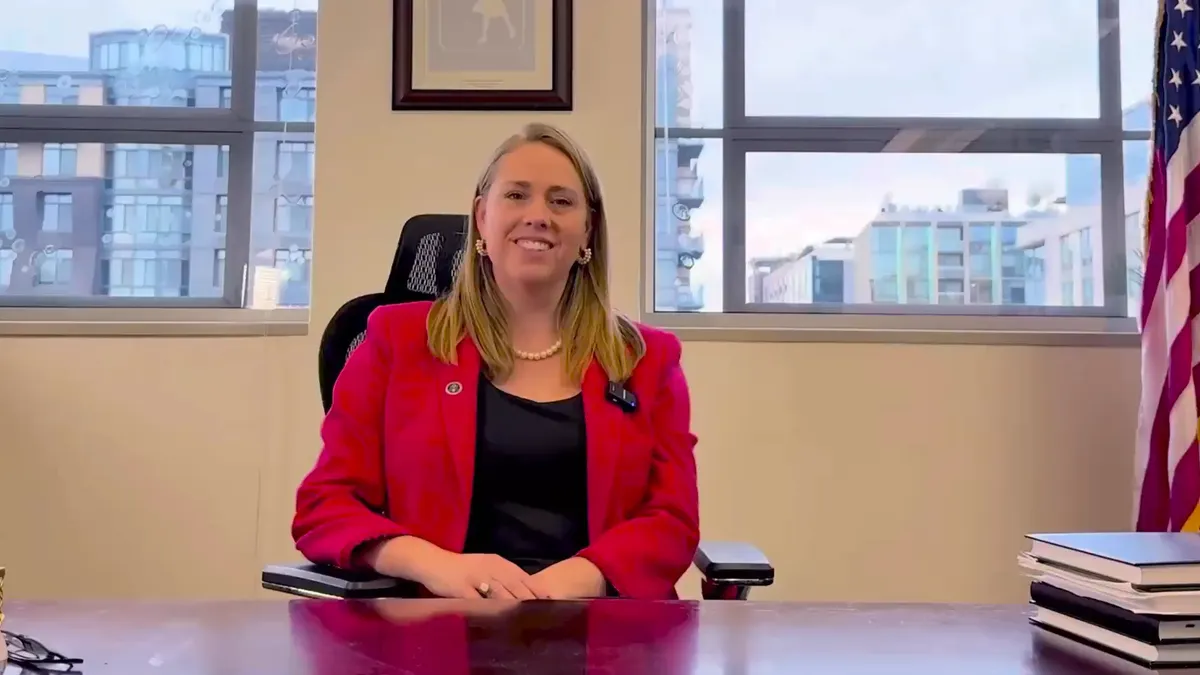The U.S. Equal Employment Opportunity Commission is not an independent agency and may follow a presidential order to take up or dismiss a charge filed against an employer if that order is lawful, Acting Chair Andrea Lucas told senators during a confirmation hearing Wednesday.
Lucas, a Republican elevated to the acting chair position by President Donald Trump and who has since been nominated to become the commission’s next chair, made the remarks in response to questions from Democratic lawmakers.
Sen. Patty Murray, D-Wash., asked Lucas if she believed that EEOC is an independent agency. Murray cited a 2021 X post in which Lucas criticized the Biden administration’s dismissal of a former EEOC general counsel in part by noting EEOC’s “independent agency” status.
“I was wrong at that time,” Lucas said. “The agency is an executive branch agency. At the time that I indicated that, I was unaware of the long record that the agency had taken that position.”
During a later exchange with Sen. Andy Kim, D-N.J., Lucas again confirmed her belief that EEOC is not independent. “In fact, every single one of the former Democrat members that were terminated by President Trump — they know that and so do colleagues across the decades,” Lucas added, referring to former commissioners Charlotte Burrows and Jocelyn Samuels.
The agency’s status as an independent federal agency has been recognized by authorities including the U.S. Department of Labor on its website. But Lucas said that EEOC’s office of legal counsel and the Justice Department have maintained since the 1970s that the commission is an executive branch agency, and that EEOC’s enforcement of laws like the Age Discrimination in Employment Act would only be constitutional if EEOC were considered part of the executive branch.
Kim asked if the agency’s status meant that the White House could direct the commission to dismiss a case or to decide a case before the agency in a certain way. Lucas said she was unable to state whether Trump had asked EEOC to do so under her leadership but that the agency could comply with lawful orders from the president.
“If the president gives me a lawful directive, which I’m confident that he would do, then I would obey that directive,” Lucas said. “And I think it is entirely appropriate for the president to direct the enforcement actions of the agency, consistent with the law.”
EEOC continues to accept transgender bias cases
The hearing followed a series of decisions by EEOC to pull back from discrimination lawsuits it had previously filed under the Biden administration on behalf of transgender and nonbinary workers alleging gender identity discrimination. Murray referenced one of the cases, EEOC v. Lush Handmade Cosmetics, and asked Lucas whether she had approved that dismissal.
Lucas said she had done so in consultation with EEOC career staff, who unanimously agreed to drop the case against Lush. Lucas added that the agency determined it would be “impossible” to advocate for the plaintiffs while following Trump’s executive order ending federal recognition of gender identity as a concept. She said the agency would continue to accept such charges, however.
“We accept all charges regardless of how they are framed or what they are indicated, and I have made clear in repeated statements that anyone can bring a charge and they will be treated professionally,” Lucas said.
Later, in response to a question by Sen. Lisa Blunt Rochester, D-Del., Lucas confirmed that transgender and nonbinary employees are protected from unlawful termination in line with the U.S. Supreme Court’s decision in Bostock v. Clayton County, Ga. But she declined to comment on reports that EEOC has instructed staff to designate lawsuits filed by transgender employees alleging gender identity discrimination at a level typically reserved for meritless charges.
“Unfortunately, I can’t speak to our investigative processes,” Lucas said. “That would require me to breach Title VII’s confidentiality provisions and deliberative privilege.”
Supreme Court’s reverse bias decision ‘doesn’t change’ commission’s work
The Supreme Court recently sided with a straight female former employee in holding that the majority-group plaintiffs alleging employment discrimination need not meet lower courts’ heightened proof burden standards when bringing such lawsuits. Lucas said the decision bolstered the agency’s longstanding position on the matter.
“It doesn’t change our work,” Lucas said of the decision in Ames v. Ohio Department of Youth Services, noting that she had joined the Biden-era Justice Department in filing an amicus brief on behalf of the plaintiff. “Everyone on both sides understood that no matter your sex or your race, [you] should be treated equally and evenhandedly by our civil rights laws. We’re just going to charge further and faster forward on that longstanding principle of civil rights law following Ames.”






















